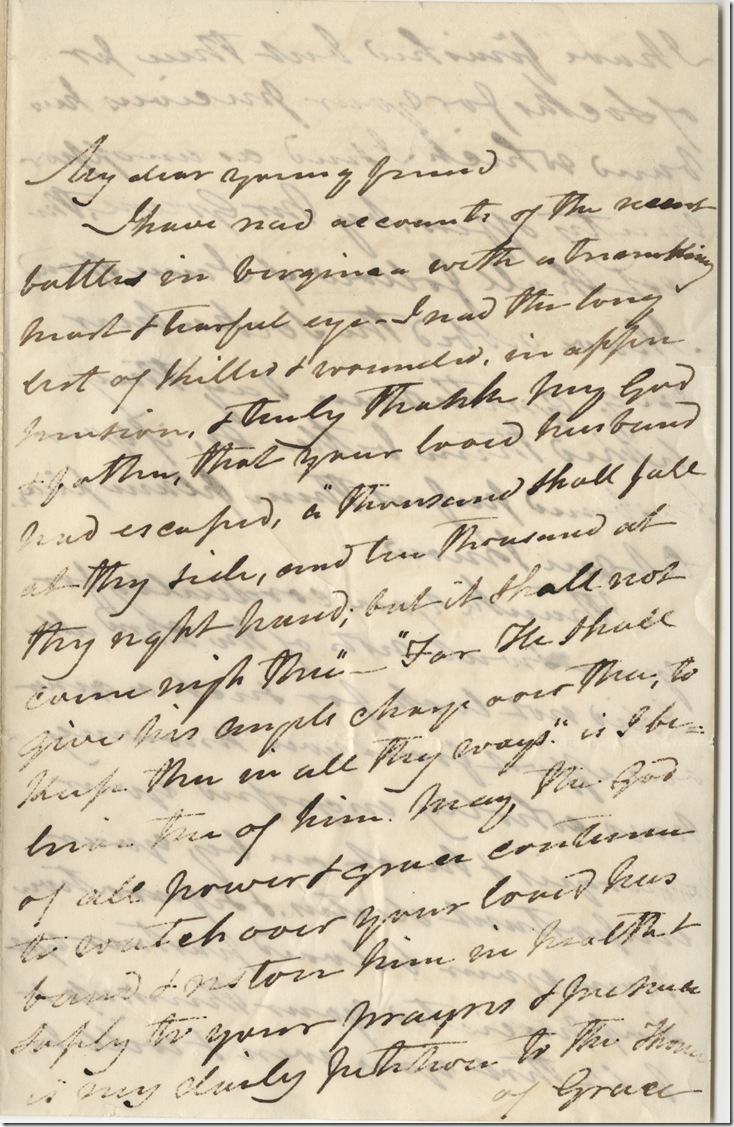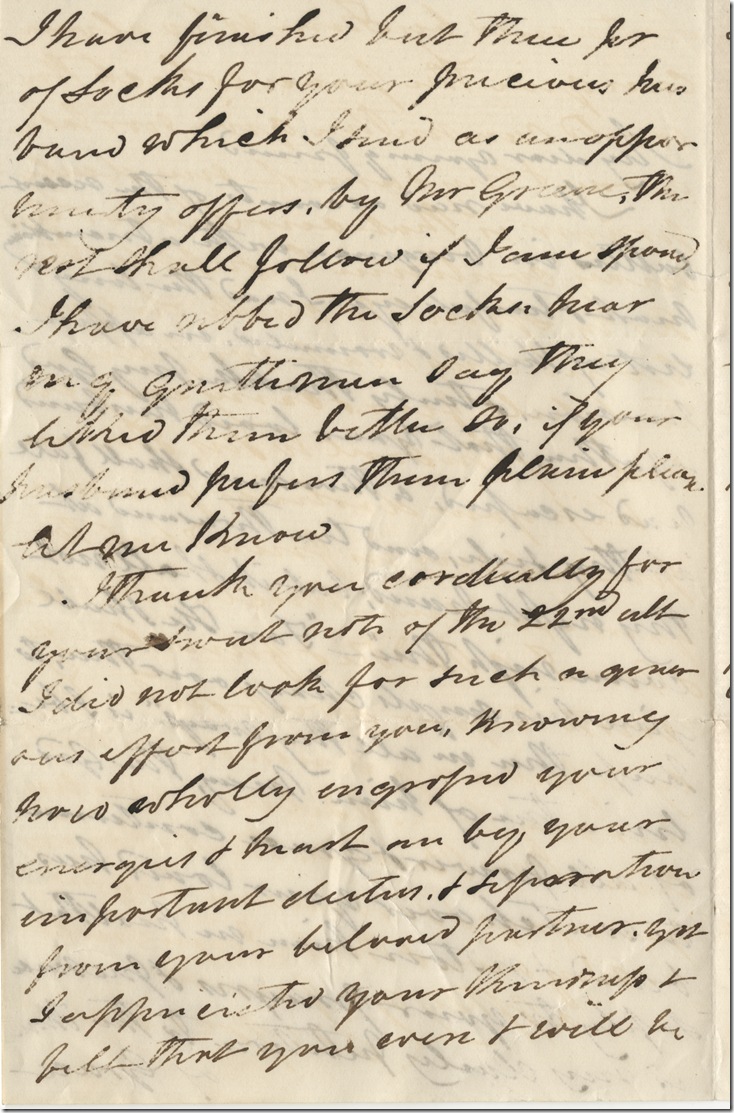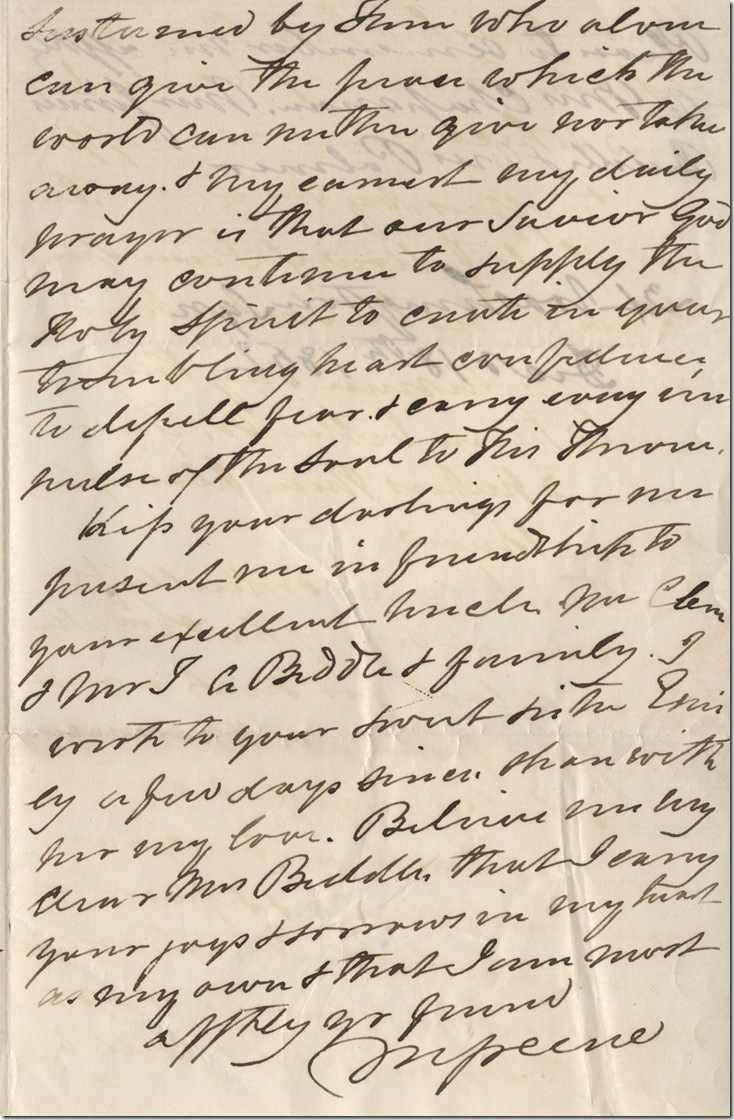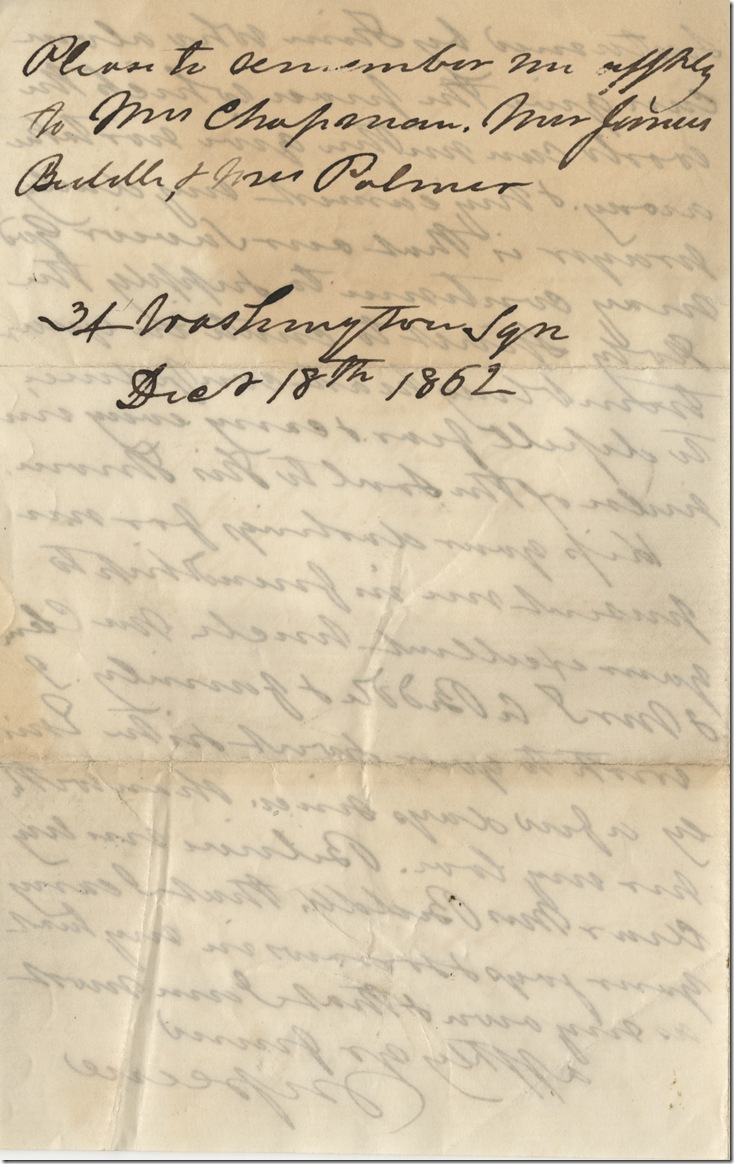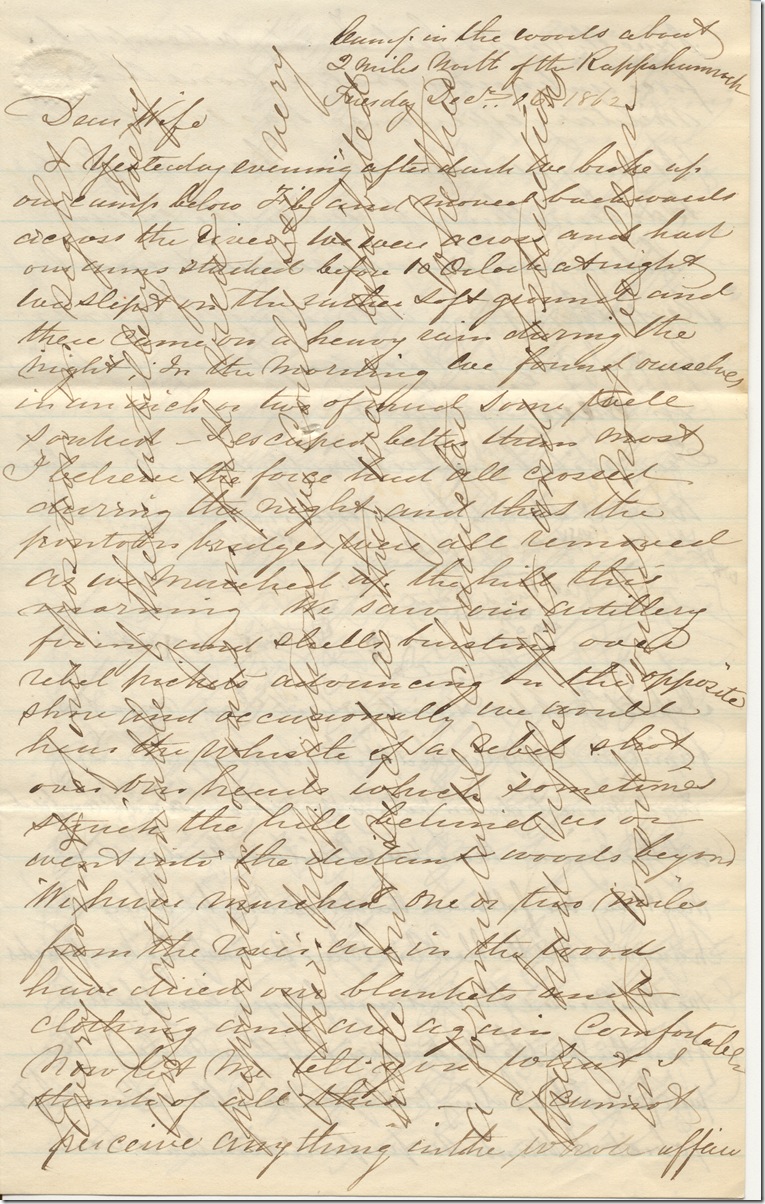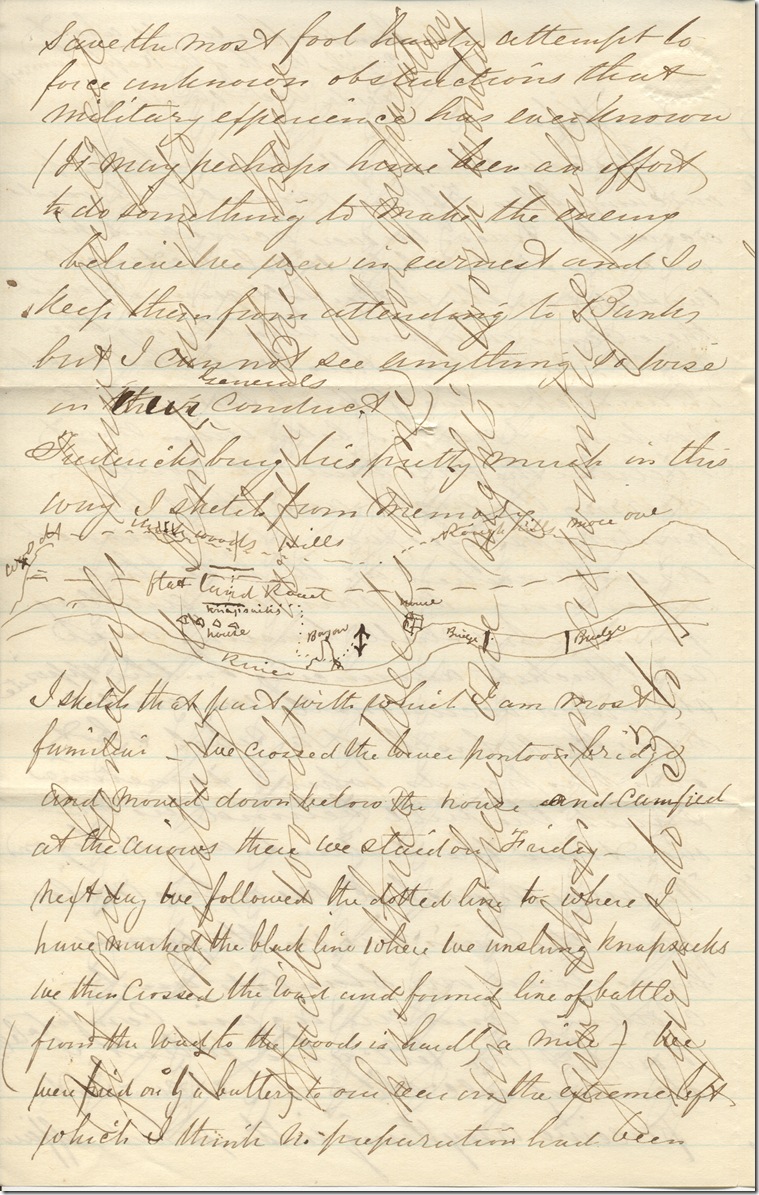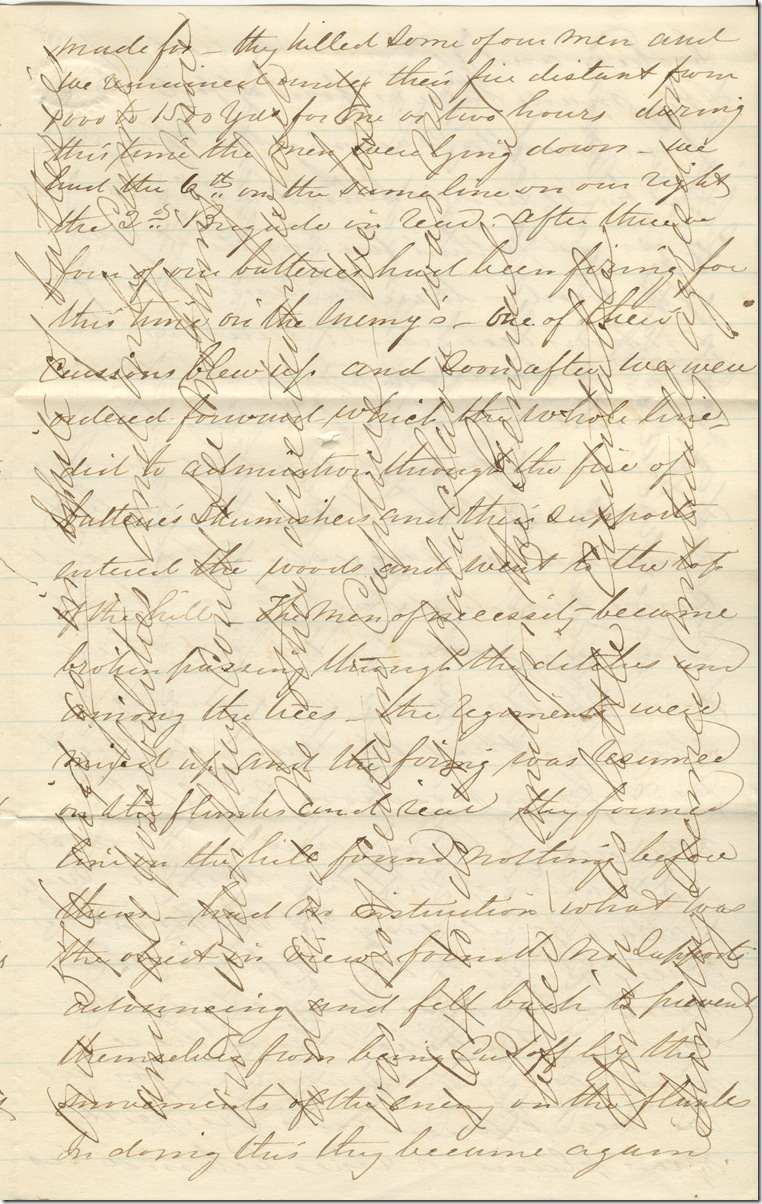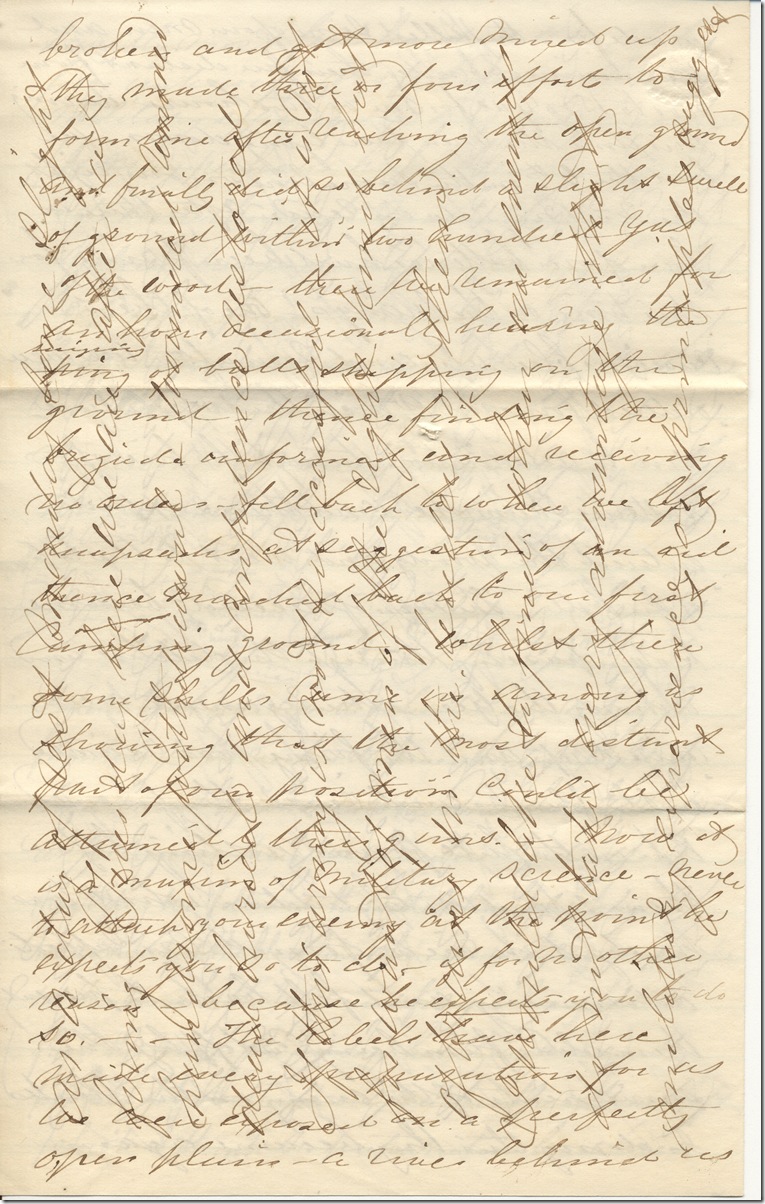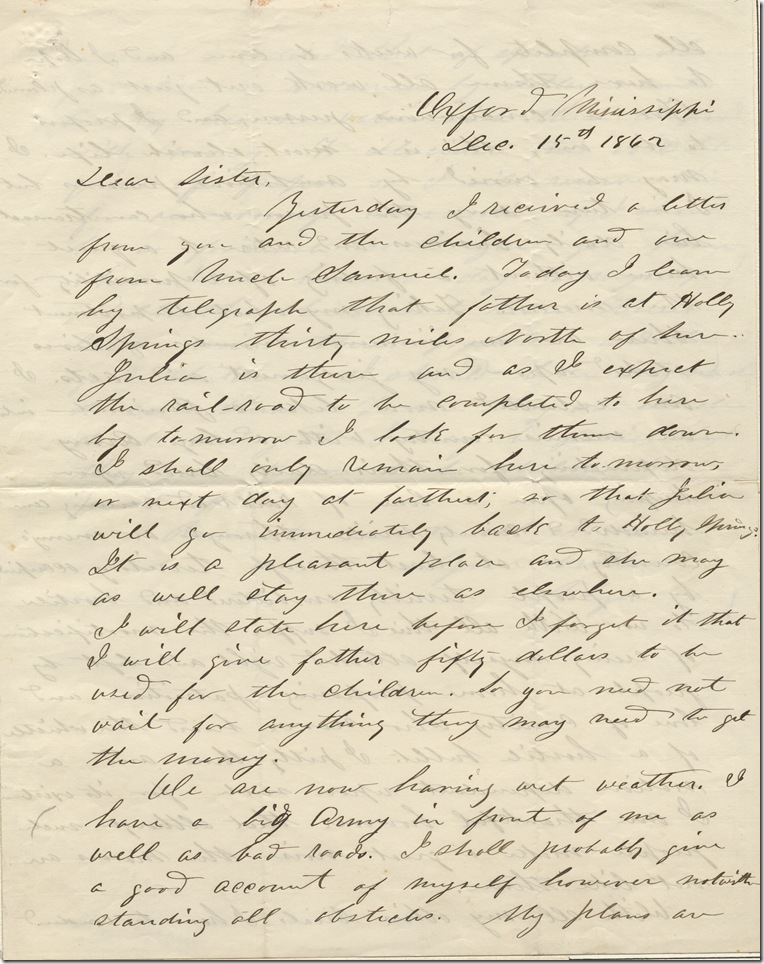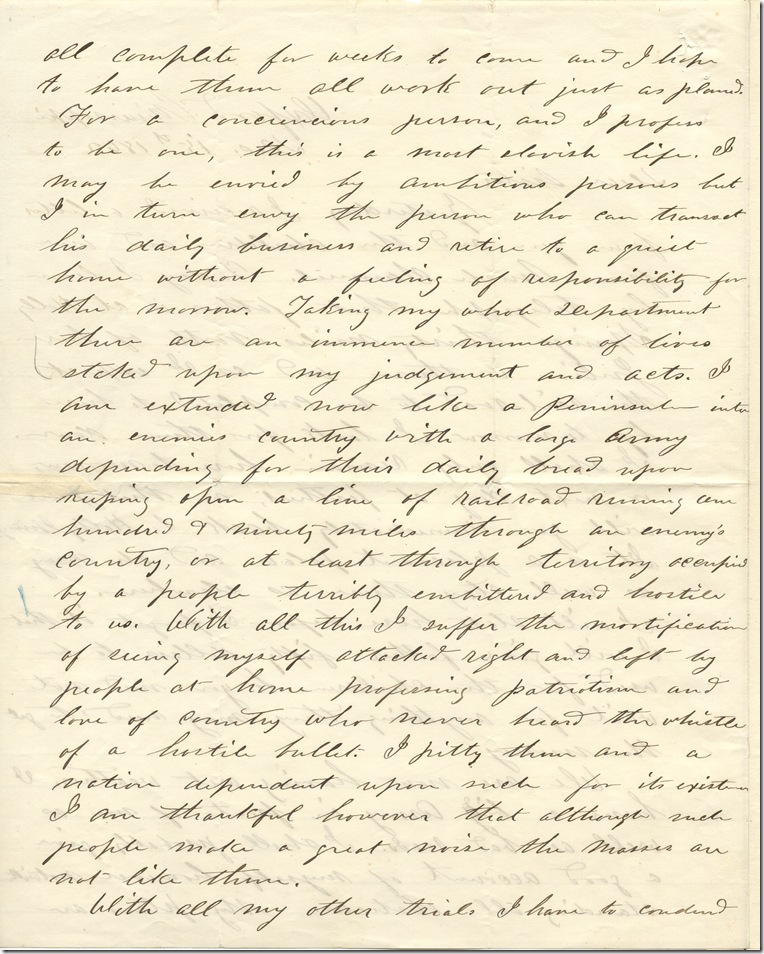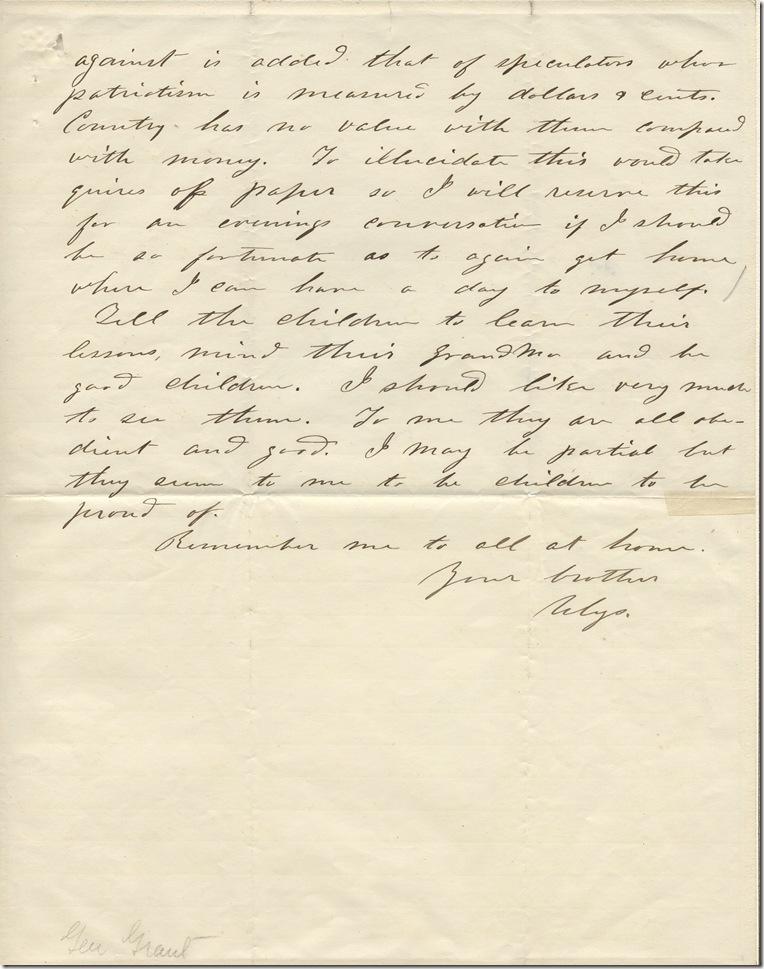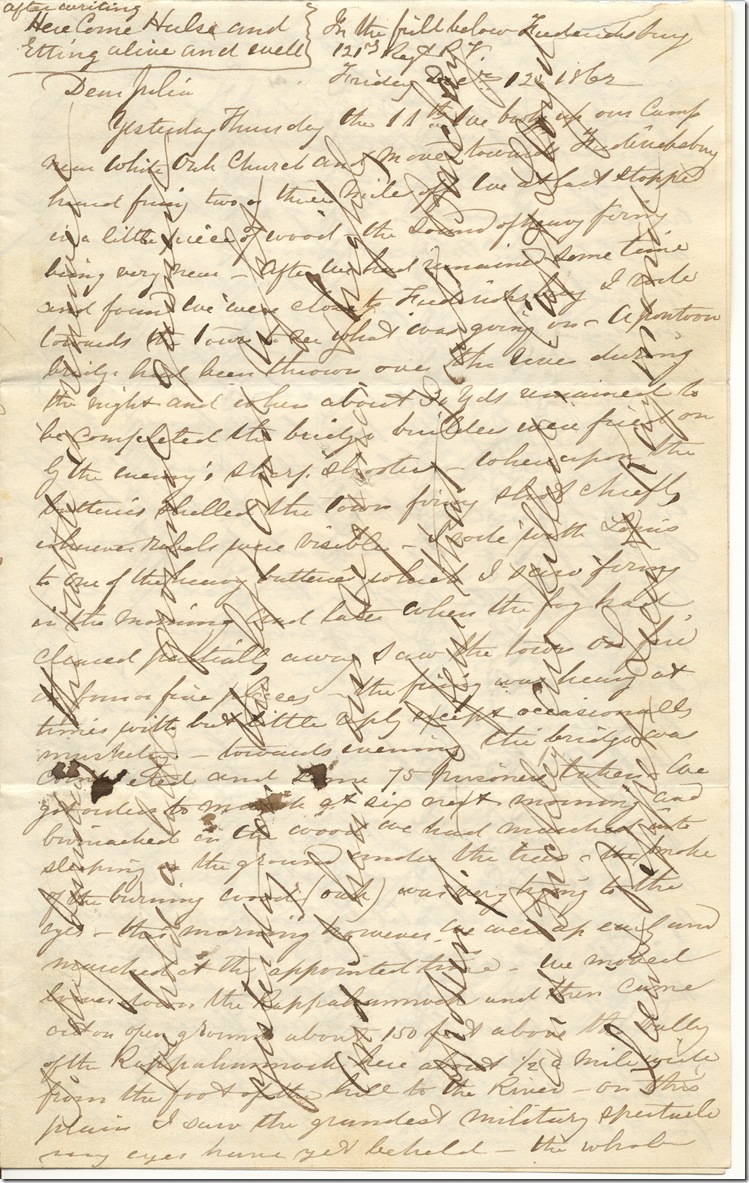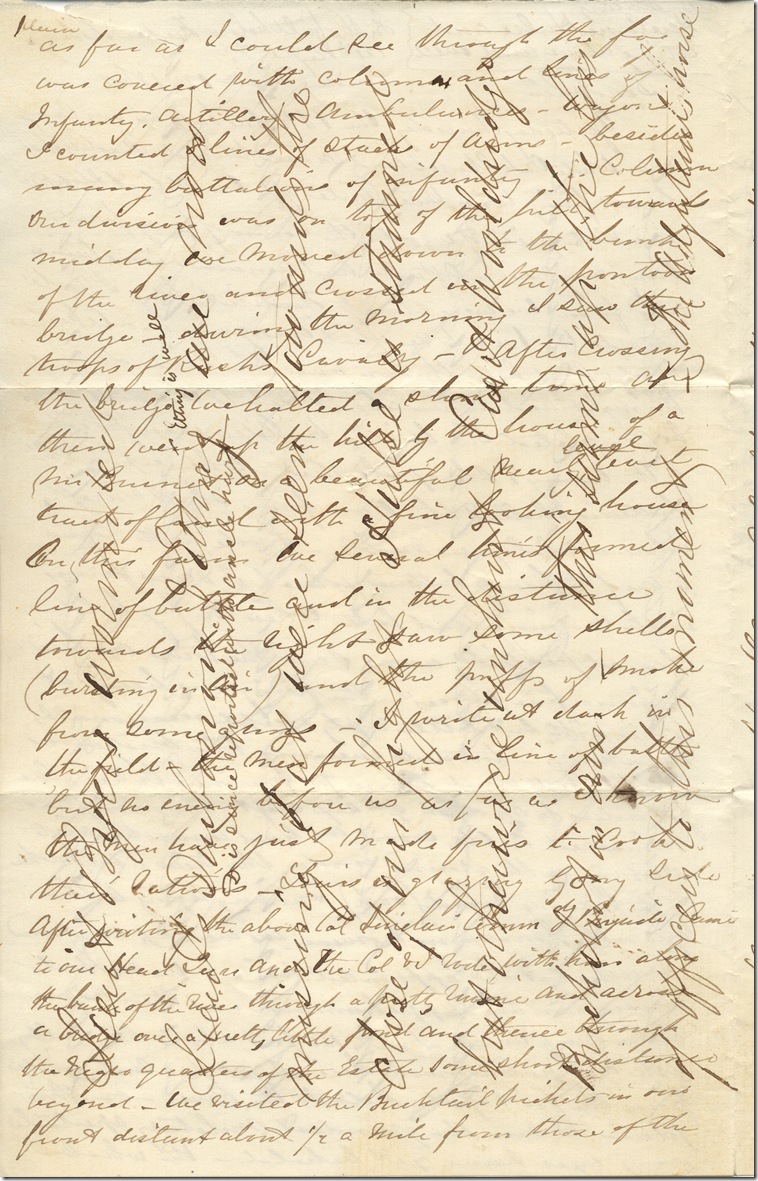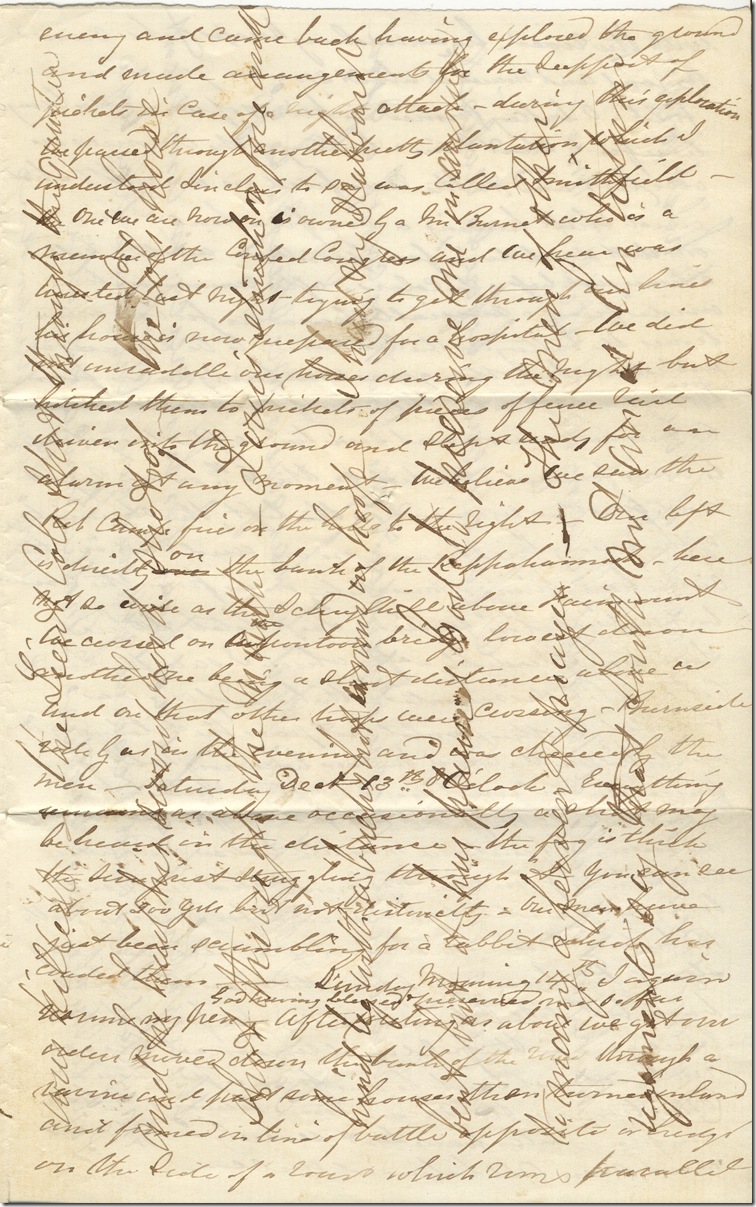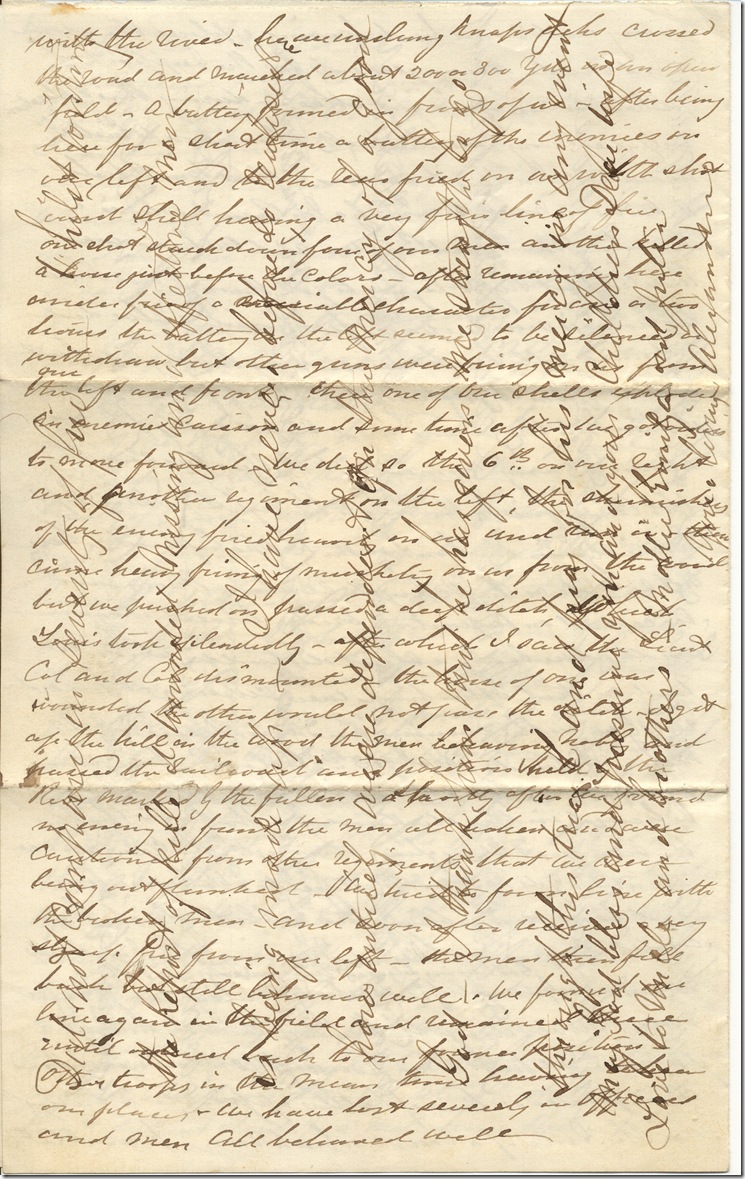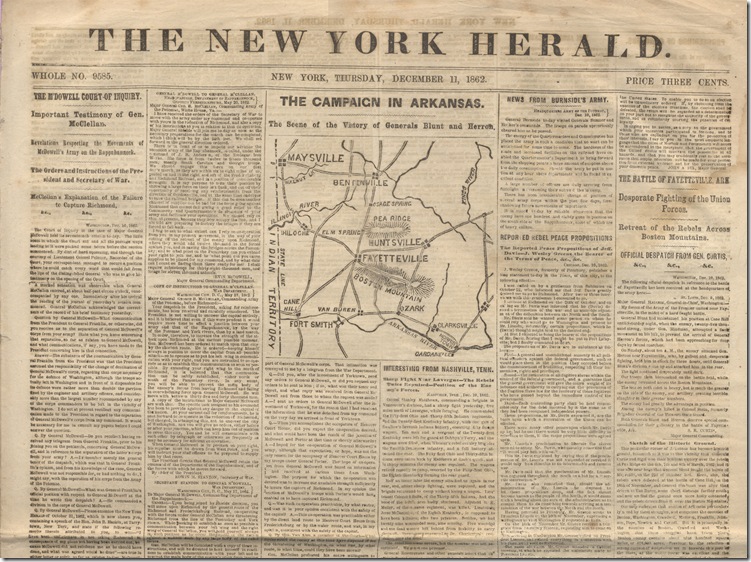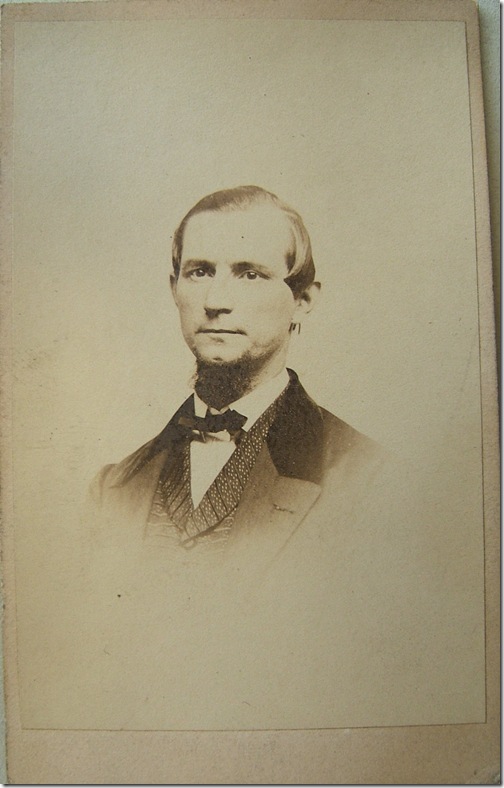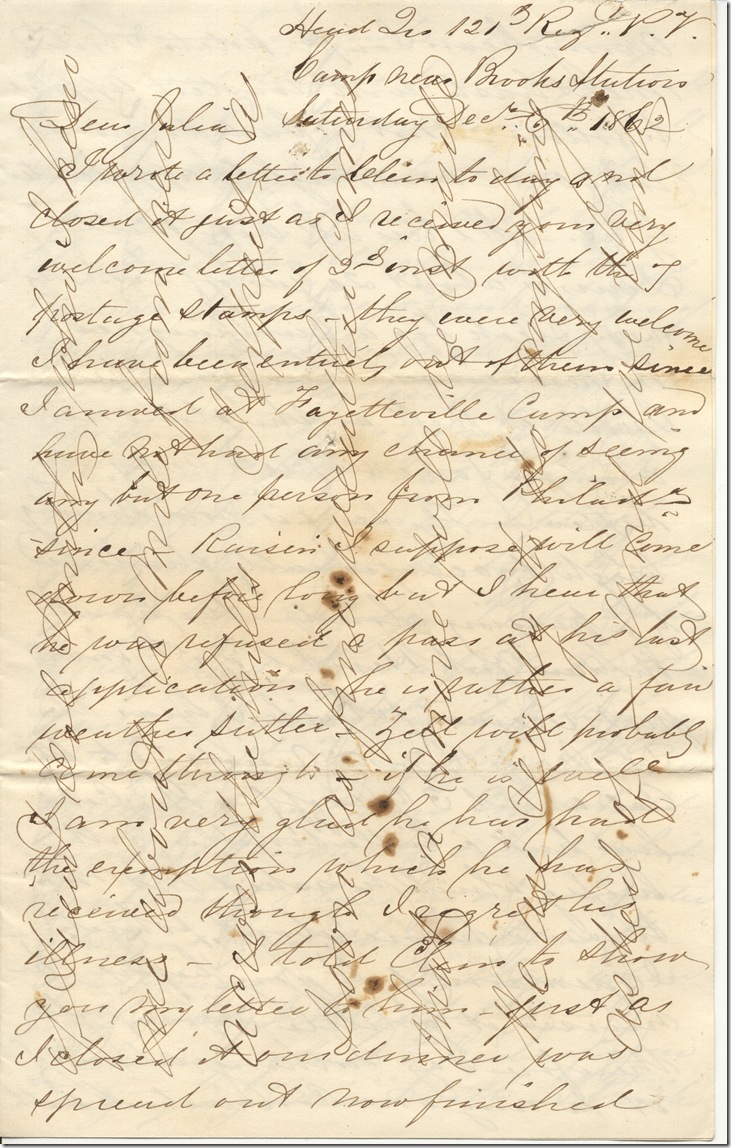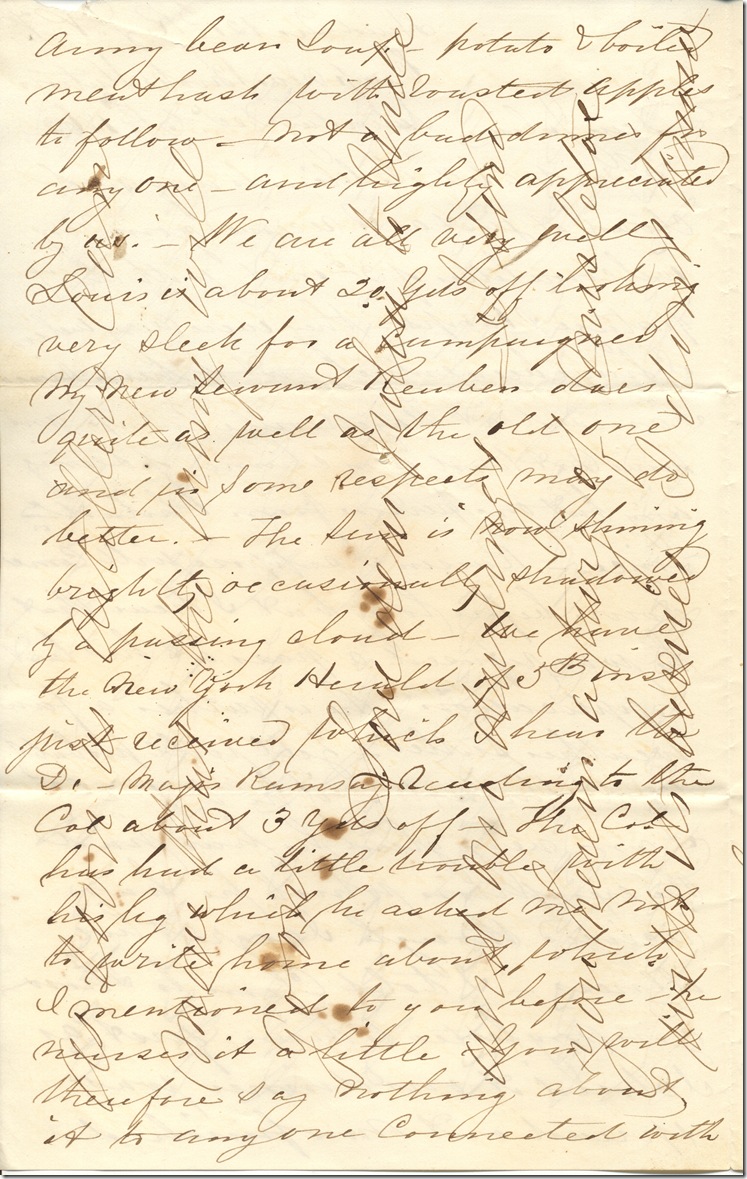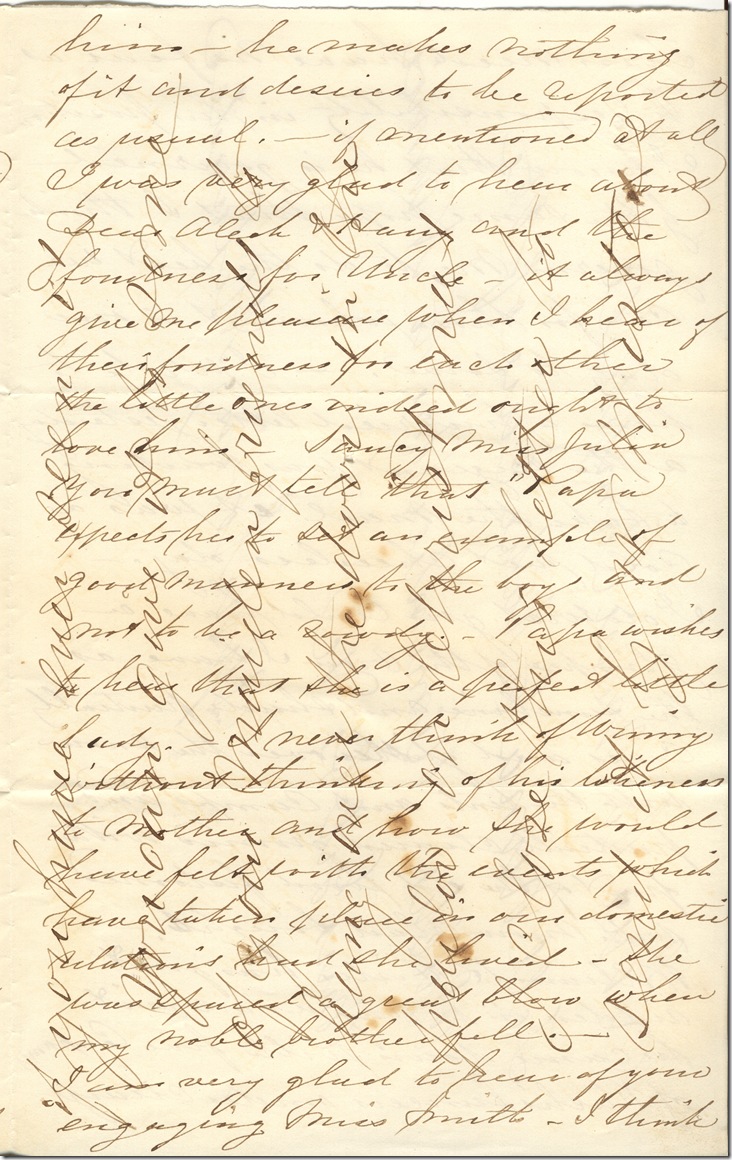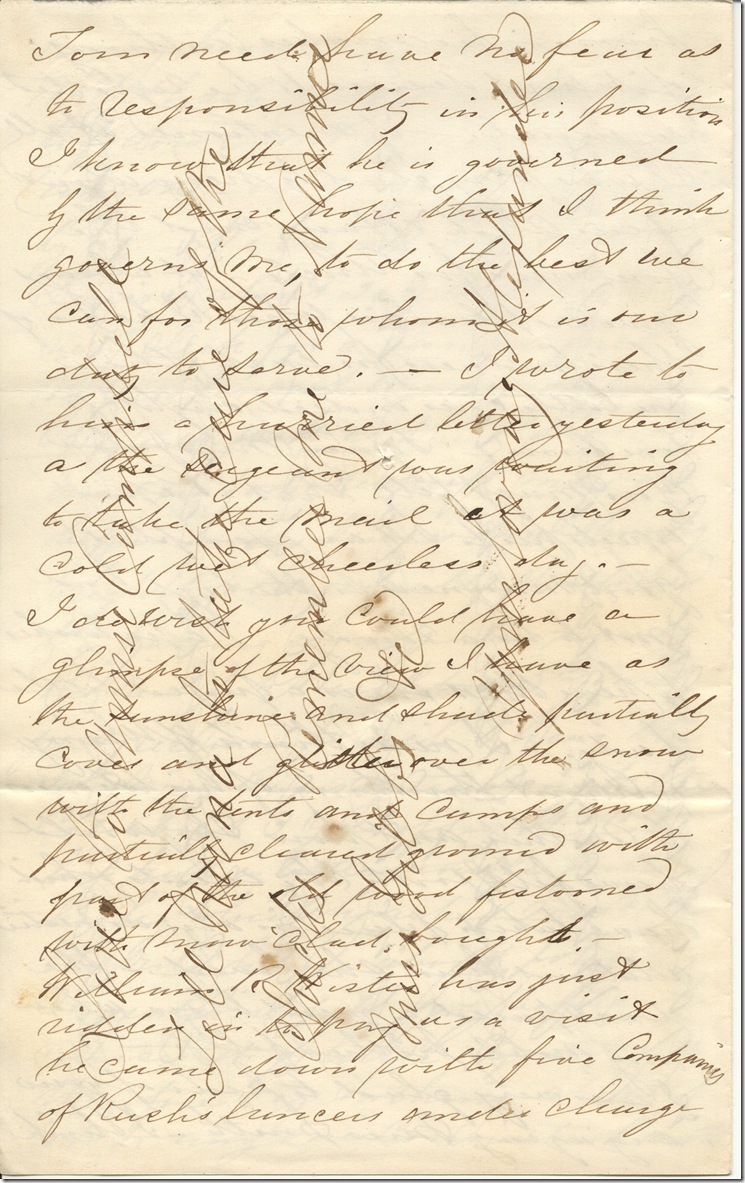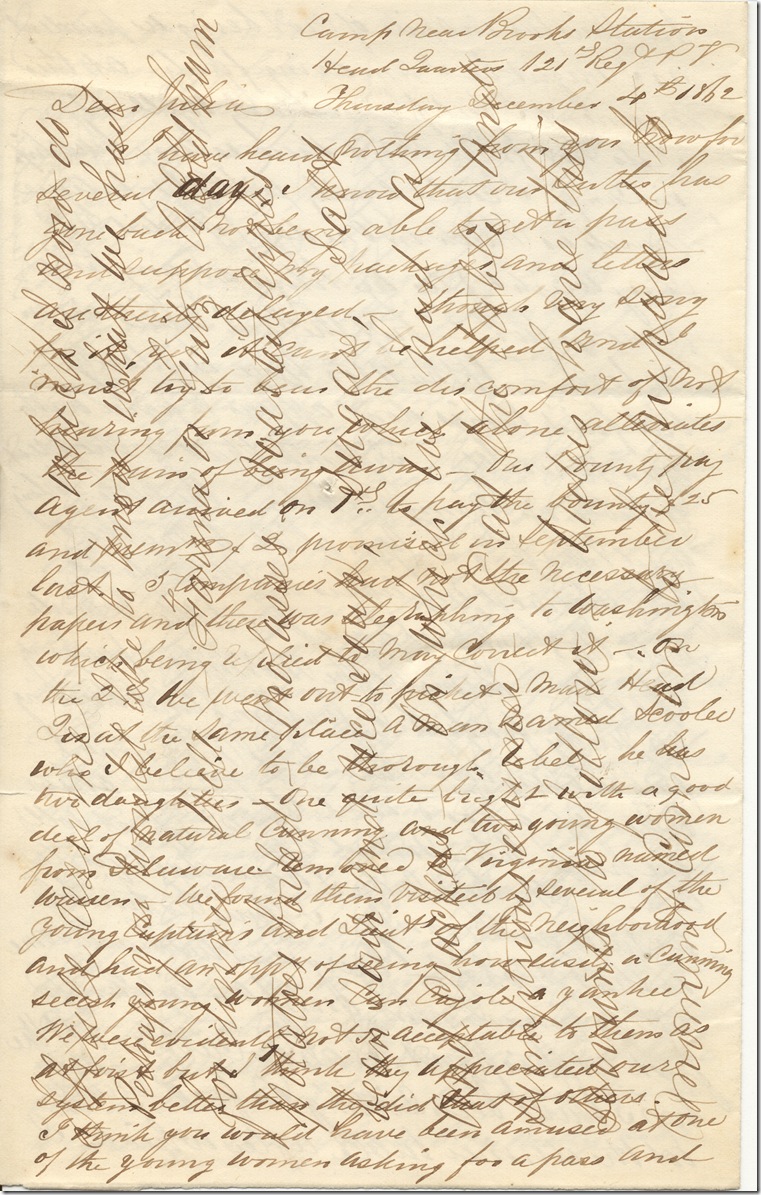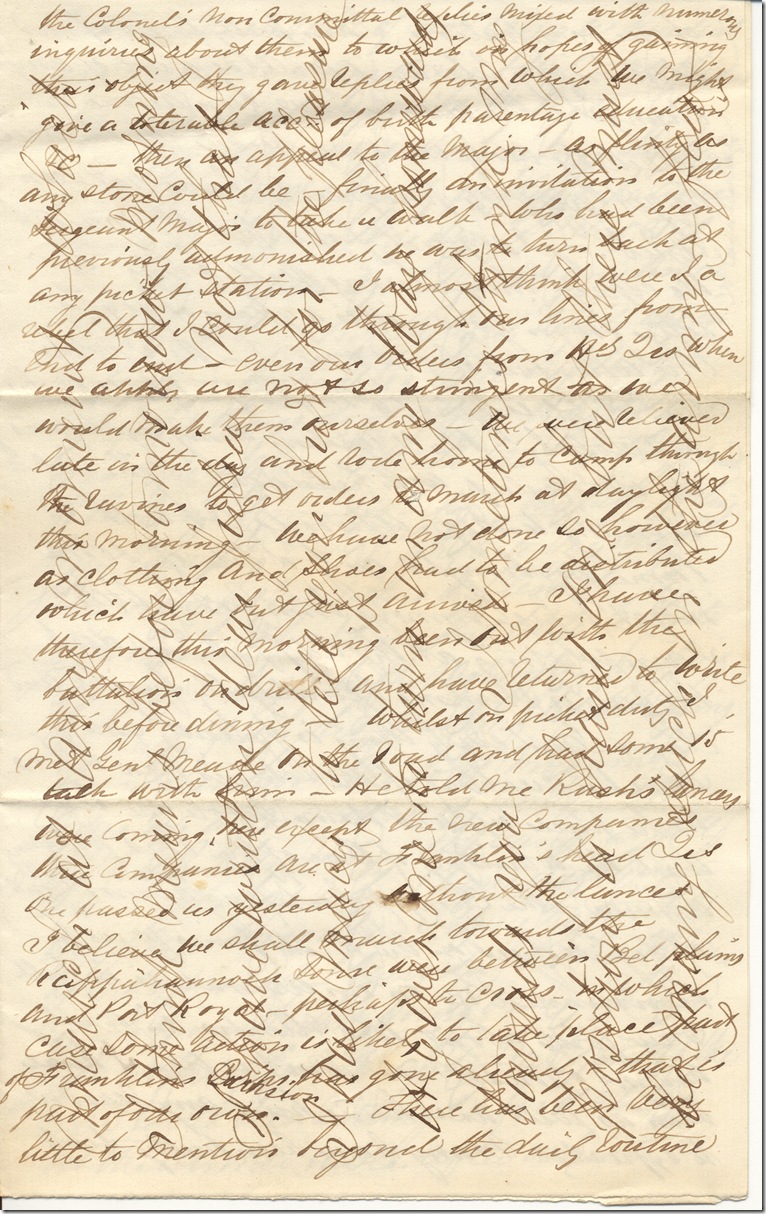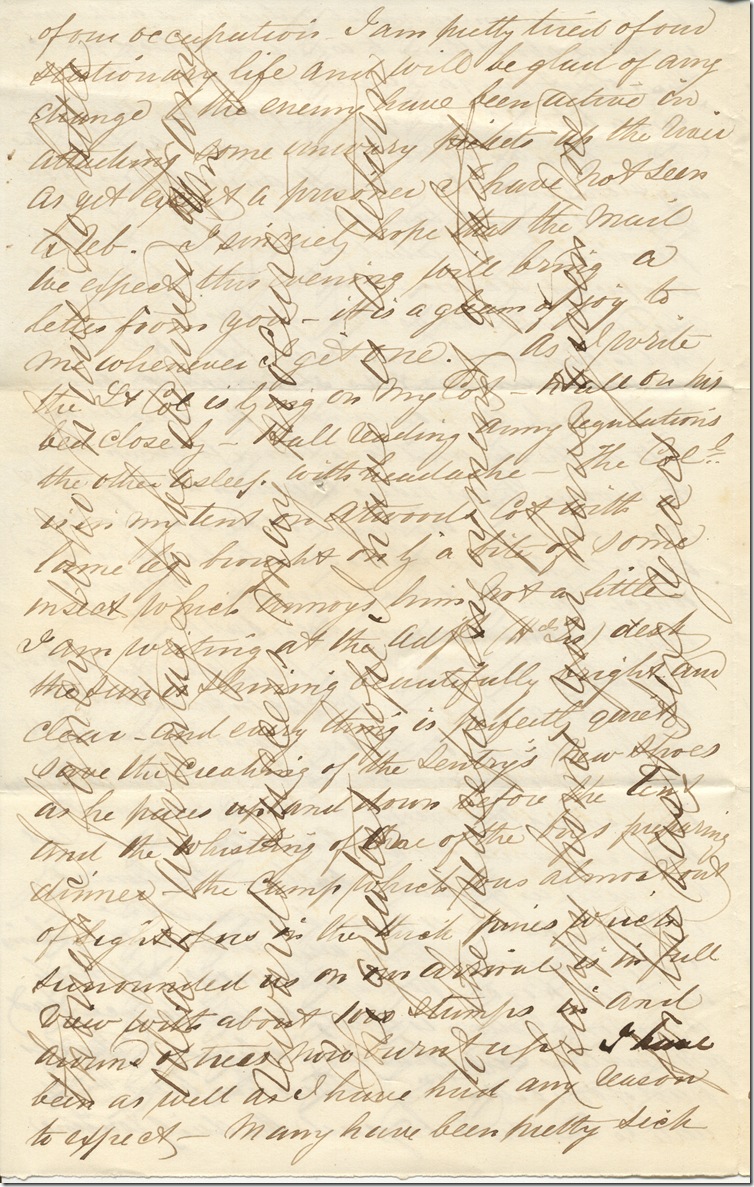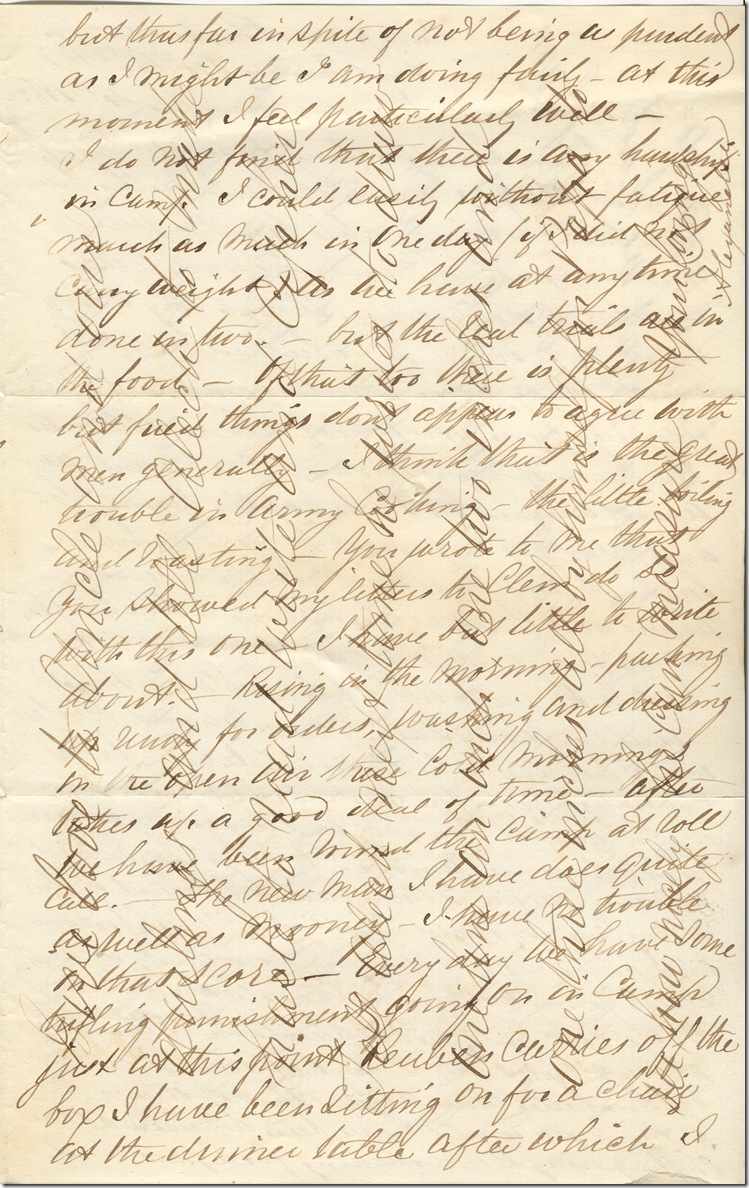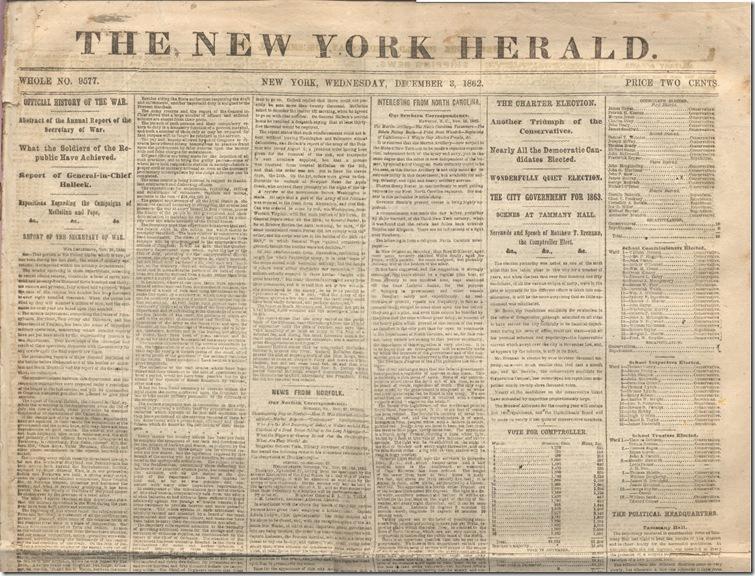Henry and Mary Warner lived in Allegheny City, Pennsylvania, now part of Pittsburgh. They are the great-grandparents of poet Marianne Moore. By the 1860s they had three surviving children: John, Henry, and Anne. Their letters to John, a Presbyterian minister living in Gettysburg, are preserved as part of Marianne Moore’s family papers.
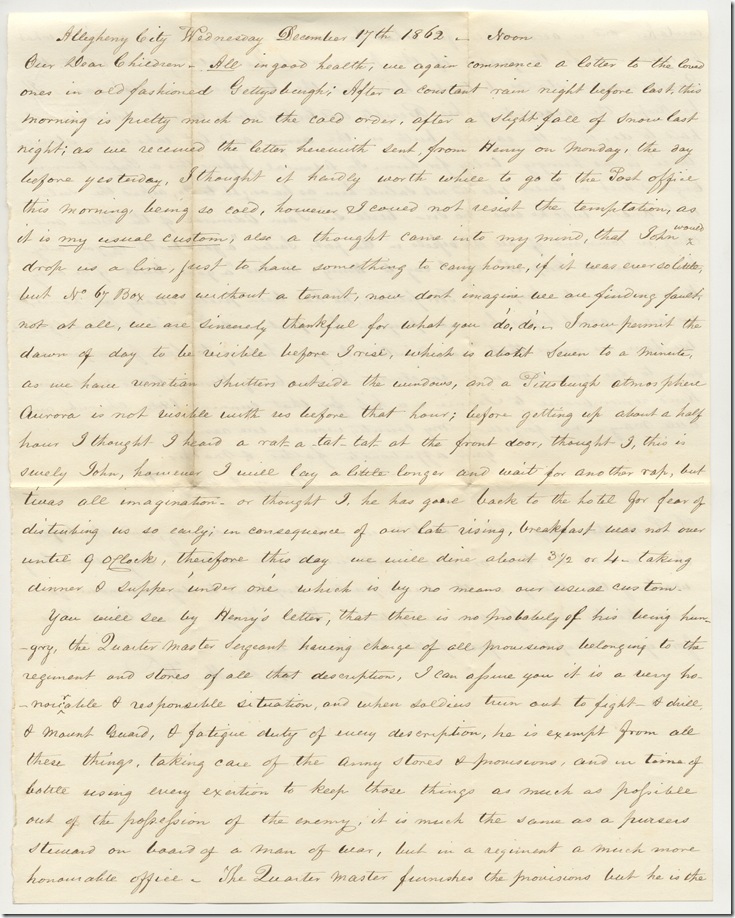
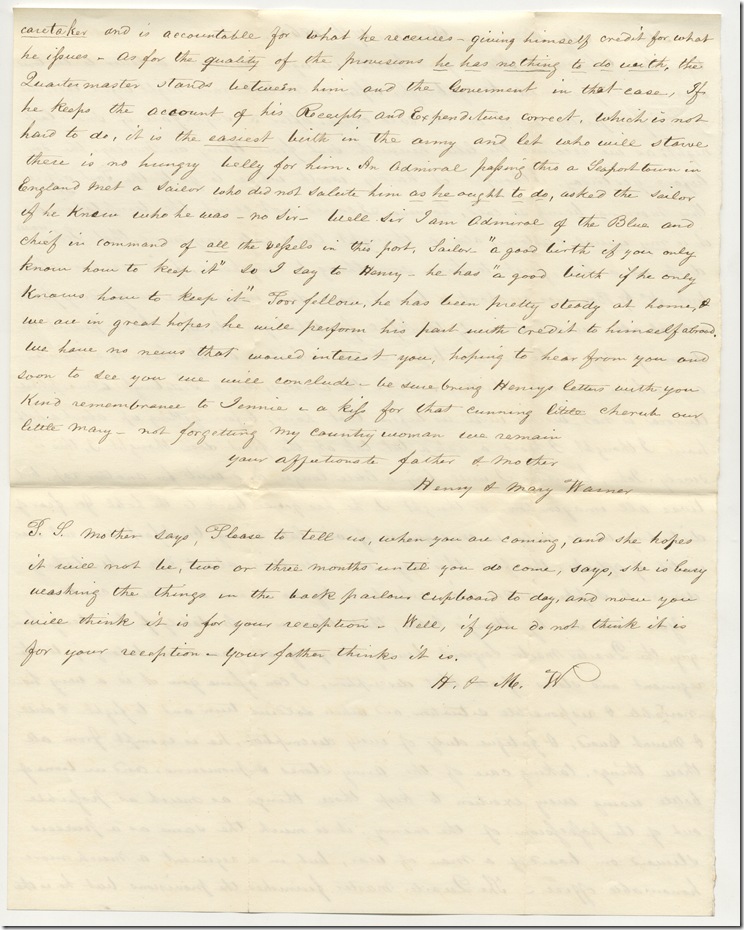
Transcript:
Allegheny City Wednesday December 17th 1862—Noon
Our Dear Children—All in good health, we again commence a letter to the loved ones in old fashioned Gettysburgh; After a constant rain night before last, this morning is pretty much on the cold order, after a slight fall of snow last night; as we received the letter herewith sent, from Henry on Monday, the day before yesterday, I thought it hardly worth while to go to the Post office this morning being so cold, however I could not resist the temptation, as it is my usual custom, also a thought came into my mind, that John would drop us a line, just to have something to carry home, if it was ever so little, but No. 67 Box was without a tenant, now dont imagine we are finding fault, not at all, we are sincerely thankful for what you do’ do’—I now permit the dawn of day to be visible before I rise, which is about Seven to a minute, as we have Venetian shutters outside the windows, and a Pittsburgh atmosphere Aurora is not visible with us before that hour; before getting up about a half hour I thought I heard a rat-a-tat-tat at the front door, thought I, this is surely John, however I will lay a little longer and wait for another rap, but ‘twas all imagination—or thought I, he has gone back to the hotel for fear of disturbing us so early; in consequence of our late rising, breakfast was not over until 9 oclock, therefore this day we will dine about 3 ½ or 4—taking dinner & supper ‘under one’ which is by no means our usual custom—
You will see by Henry’s letter, that there is no probability of his being hungry, the Quartermaster Sergeant having charge of all provisions belonging to the regiment and stores of all that description, I can assure you it is a very honourable & responsible situation, and when soldiers turn out to fight– & drill & mount guard, & fatigue duty of every description, he is exempt from all these things, taking care of the Army stores & provisions, and in time of battle using every excition to keep these things as much as possible out of the possession of the enemy, it is much the same as a pursers steward on board of a man of war, but in a regiment a much more honourable office—The Quartermaster furnishes the provisions but he is the caretaker and is accountable for what he receives—giving himself credit for what he issues—As for the quality of the provisions he has nothing to do with, the Quartermaster stands between him and the Government in that case, If he keeps the account of his Receipts and Expenditures correct, which is not hard to do, it is the easiest berth in the Army and let who will starve there is not hungry belly for him. An Admiral passing this a Seaport town in England met a sailor who did not salute him as he ought to do, asked the sailor if he knew who he was—no Sir—Well Sir I am Admiral of the Blue and Chief in Command of all the vessels in this port, Sailor—“a good berth if you only know how to keep it” so I say to Henry—he has “a good berth if he only knows how to keep it”—Poor fellow, he has been pretty steady at home, & we are in great hopes he will perform his part with credit to himself abroad. We have no news that would interest you, hoping to hear from you and soon to see you we will conclude—be sure bring Henrys letter with you Kind remembrance to Jennie—a kiss for that cunning little cherub our little Mary—not forgetting my countrywoman we remain
Your affectionate father & mother
Henry & Mary Warner
P.S. Mother says, Please to tell us, when you are coming, and she hopes it will not be two or three months until you do come, says, she is busy washing the things in the back parlour cupboard to day, and now you will think it is for your reception—Well, if you do not think it is for your reception—your father thinks it is
H. & M. W
Citation: Henry and Mary Warner, autograph letter signed to John Riddle Warner. Allegheny City [Pittsburgh], 17 December 1862. Moore VI:05:13
